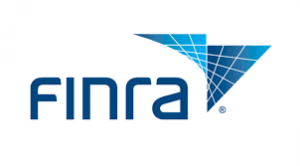
On August 23, 2022, FINRA published an AWC reflecting a settlement with ViewTrade Securities, Inc. The AWC alleges that ViewTrade failed to establish and implement written AML policies and procedures that could reasonably detect and cause the reporting of suspicious transactions in violation of FINRA Rule 3310. FINRA Rule 3310 requires that each member firm develop and implement a written AML program reasonably designed to achieve and monitor the member’s compliance with the requirements of the Bank Secrecy Act (31 U.S.C. 5311, et seq.) (BSA). Rule 3310(a) further requires firms to, “[e]stablish and implement policies and procedures that can be reasonably expected to detect and cause the reporting of transactions required under [the BSA] . . . . ” The regulations implementing the BSA, in turn, require every broker-dealer to file a Suspicious Activity Report (“SAR”) with the Financial Crimes Enforcement Network any time they detect, “any suspicious transactions relevant to a possible violation of law or regulation.”
FINRA’s past guidance on this issue (NTM 02-21 and Regulatory Notice 19-18) advised firms to look for red flags and provided several examples:
- Customers’ mailing address is associated with multiple other accounts or business that do not appear related,
- Customers that buy and sell securities for no discernable purpose,
- Inflows or outflows of funds that are well beyond the known means of the customer, or
- Unexplained or extensive wire activity.
FINRA described a litany of failures on the part of ViewTrade to monitor for suspicious activity. While ViewTrade produced a daily transaction report to be review by a designated principal, the firm’s WSPs failed to reflect how that principal was supposed to use that report. Apparently, ViewTrade’s WSPs contained no parameters on detecting suspicious activity, no guidance on who would review the report or the frequency of the review. ViewTrade’s procedures also failed to address how personnel should document their reviews of the report and when and how to escalate potential issues. ViewTrade failed to review instances where its surveillance reports flagged potential spoofing, layering and wash trades.
FINRA also criticized ViewTrade’s surveillance reports for not being reasonably designed to detect suspicious activity. The example provided in the AWC stated that ViewTrade’s volume report was designed to detect when a customer’s trading activity surpassed a certain percentage of average daily volume, yet was unreasonably limited to low-priced securities. Remarkably, when reviewing reports for suspicious trading activity, the reviewers apparently had no automated system to determine if a particular customer’s account had previously come up on a given exception report.
According to the AWC, the failures of ViewTrade’s AML policies and procedures resulted in multiple failures to detect and investigate suspicious activity. For example, ViewTrade did not detect or investigate when purportedly unrelated foreign-based customers opened accounts on the same day with identical or near-identical mailing addresses. Similarly, ViewTrade did not detect or investigate several instances of purportedly unrelated foreign-based customers opening accounts and then using identical email addresses to submit indications of interest in an upcoming IPO. In three separate IPOs in which ViewTrade acted as underwriter, ViewTrade failed to detect multiple foreign-based customers who, on an unsolicited basis, provided identical indications of interest in the IPOs at or near the same time. After the IPOs, ViewTrade’s customers engaged in suspicious trading activity that FINRA described as, “indicative of bid support and attempts at manipulating market prices.”
ViewTrade also allegedly failed to detect inflows and outflows of assets that were not in line with the customer’s stated net worth and income. In one example, a customer listed their net worth between $50,000 and $100,000 and then proceeded to purchase over a $1,000,000 in securities in a single year, included the large amount of the IPOs discussed above.
Separately, the AWC also alleged that ViewTrade violated various rules regarding procedures required for managing the risk surrounding market access. From July 2017 through at least February 2020, ViewTrade provided its customers access to trading on multiple exchanges through use of ViewTrade’s market participant identifier. ViewTrade established credit controls for its customers, but it did not monitor on an ongoing basis whether its customer credit controls remained appropriate, and it did not have any written supervisory procedures in place requiring that it do so.
For this laundry list of rule violations, FINRA imposed a fine of $250,000 and ViewTrade is required to work with a third-party consultant (approved by FINRA) to set its house in order. In determining sanctions, the AWC does note that ViewTrade “took proactive steps and invested substantial resourced to remediate its AML program.” ViewTrade must see a $250,000 fine as a great result, particularly in light of some of the much heavier fines that other firms have paid for AML issues, such as the $15 million fine that Interactive Brokers paid in 2020.
Herskovits PLLC has a nationwide practice defending against FINRA investigations and disciplinary proceedings. Feel free to contact us at (212) 897-5410.
 FINRA Lawyer Blog
FINRA Lawyer Blog

